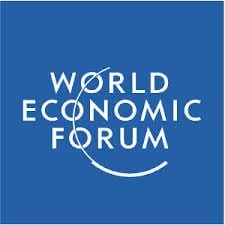Promoting transnational infrastructure as a physical backbone of regional integration is a common ambition, and initiatives are underway to give greater priority to cross-border programmes, a new report says.
The report titled Managing Transnational Infrastructure Programmes in Africa – Challenges and Best Practices was recently released by the World Economic Development Forum in collaboration with the Boston Consulting Group. It aims to serve as a guide for policy makers, sponsors and managers to help facilitate the delivery of transnational infrastructure programmes on schedule, at cost and at a high quality. Challenges Transnational infrastructure programmes often have financial challenges such as agreeing on the sharing of programme costs, risks and benefits, and then implementing agreements in the absence of a supranational authority; or structuring the financing with different currencies and different national financial capacities. Technical and regulatory challenges include the provision and enforcement of legal agreements and the alignment of procedures. The human factor is present as well: the need to build relationships based on trust, to overcome historical legacies of political differences and to bridge language barriers. In transnational programmes, the number and variety of stakeholders is amplified, as is the cultural diversity of the teams. Programme governance also poses a challenge in aligning different national agendas and ensuring that all participating countries have appropriate ownership. According to the report, it is difficult to coordinatethe responsibilities and processes across countries, and to overcome national interest in staffing, and although these challenges might arise in any region, they are particularly severe in Africa. This is because of the continent’s large variety of languages, currencies and great variation in the financial capacities of individual countries. Overcoming the challenges It is critical to institutionalise cross-border collaboration over the projects entire lifecycle, the report points out. The report suggests that this task could be managed by a special purpose public agency (SPPA), established by the countriesinvolved. This SPPA could take various forms, such as a public consortium, a private venture, a public-owned private enterprise or a public-private partnership (PPP).The SPPA would have overall accountability for the programme and ensure that it is managed coherently, rather than as individual projects.
Over the programme’s life cycle, the agency’s role would change. It would drive the preparation phase by conducting the technical, environmental, social and economic studies, after which it would prepare the tender documents, select contractors and issue contracts. During the construction phase, the agency would supervise the construction process and ensure alignment across borders. During the O&M phase, the agency would commission and supervise all maintenance processes and again ensure alignment across borders. A conducive environment Transnational infrastructure programmesneed a conducive environment to flourish. The environment should have the right management capacities and capabilities in the public sector, as well as in national and regional finance institutions, parastatalsand a programme management unit such as a SPPA. “A final crucial factor – good relationships between the relevant parties – requires trust, and the investment of time and effort in building those relationships. Institutions, treaties and agreements can support bilateral and multilateral cooperation, but they are no substitutes for trust,” says the report. Read the report.






